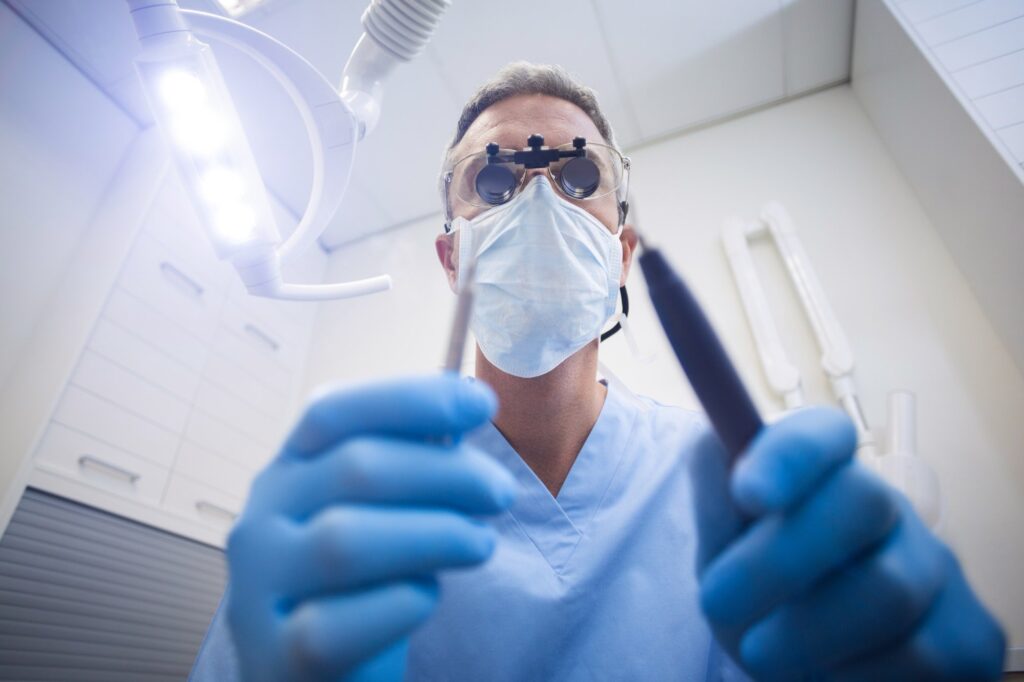Maintaining good oral hygiene is crucial for overall health, and regular dental cleaning plays a vital role in achieving this. While daily brushing and flossing are essential, professional dental cleaning by a dentist or hygienist provides a deeper clean, removing plaque, tartar, and bacteria that are difficult to reach at home. In this post, we will explore the importance of dental cleanings, the benefits they offer, and how often you should schedule them.
What is Dental Cleaning?
Dental cleaning, also known as prophylaxis, is a professional procedure performed by a dentist or dental hygienist to clean your teeth and gums thoroughly. The process involves removing plaque, tartar, and stains that accumulate over time, even with proper brushing and flossing. This preventive care is essential for maintaining your oral health and preventing issues like tooth decay and gum disease.
The Benefits of Regular Dental Cleanings
- Prevention of Gum Disease
One of the primary benefits of dental cleanings is the prevention of gum disease (gingivitis and periodontitis). Plaque buildup along the gumline can cause inflammation, leading to gum disease if not addressed. Professional cleanings help remove this buildup, promoting healthier gums. - Cavity Prevention
Plaque is a sticky film of bacteria that can eat away at your tooth enamel, leading to cavities. During a dental cleaning, plaque and tartar are removed, reducing your risk of cavities. - Fresher Breath
Bad breath, or halitosis, is often caused by food particles and bacteria that are not thoroughly cleaned away with regular brushing. A dental cleaning removes these odor-causing agents, leaving you with fresher breath. - Brightens Your Smile
Over time, teeth can become stained from foods, beverages, and smoking. A professional dental cleaning removes surface stains, leaving your teeth looking brighter and more polished. - Improves Overall Health
Poor oral health has been linked to several systemic conditions such as heart disease, diabetes, and respiratory infections. By maintaining a healthy mouth through regular dental cleanings, you reduce your risk of these health issues.
How Often Should You Get a Dental Cleaning?
The American Dental Association recommends visiting your dentist for a cleaning and checkup every six months. However, your dentist may suggest more frequent visits if you have a history of gum disease, cavities, or other dental issues. Regular cleanings not only keep your teeth and gums healthy but also allow your dentist to catch any problems early, saving you from more extensive treatments in the future.
What to Expect During a Dental Cleaning
A typical dental cleaning involves the following steps:
- Examination – The dental hygienist will first examine your mouth to check for signs of cavities, gum disease, or other oral health issues.
- Plaque and Tartar Removal – The hygienist uses special tools to scrape away plaque and tartar from your teeth and gumline.
- Deep Cleaning – After removing the buildup, the hygienist will polish your teeth with a gritty toothpaste to remove surface stains.
- Flossing – Your teeth will be flossed to remove any remaining debris between them.
- Fluoride Treatment (optional) – Some dental offices offer fluoride treatment after cleanings to help strengthen your enamel and prevent cavities.
Conclusion
Regular dental cleanings are an essential part of your oral health routine, helping to prevent gum disease, cavities, and other serious health issues. By scheduling cleanings every six months and maintaining good dental hygiene at home, you can enjoy a healthier smile and better overall well-being. Don’t wait—book your next dental cleaning today and keep your teeth in top shape!
Frequently Asked Question
Why is regular dental cleaning important for oral health?
Regular dental cleaning is crucial for maintaining good oral health because it provides a deeper clean than daily brushing and flossing. Professional dental cleaning removes plaque, tartar, and bacteria that are difficult to reach at home, helping to prevent cavities, gum disease, and other oral health issues.
How often should I schedule a dental cleaning?
It is generally recommended that you schedule a dental cleaning every six months. However, the frequency may vary based on individual oral health needs, so it is best to consult with your dentist to determine the most appropriate schedule for you.
What can I expect during a dental cleaning appointment?
During a dental cleaning appointment, a dentist or dental hygienist will perform a thorough cleaning of your teeth and gums. This typically involves removing plaque and tartar buildup, polishing your teeth to remove stains, and providing guidance on maintaining oral hygiene at home. The process is generally painless and takes about 30 to 60 minutes.


